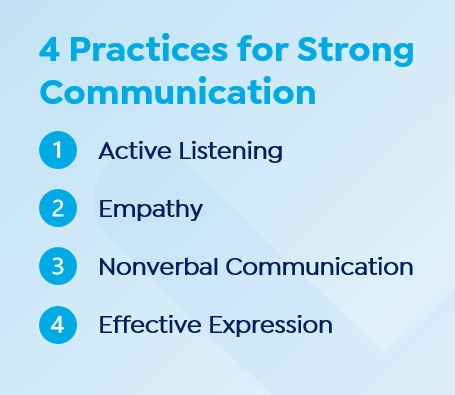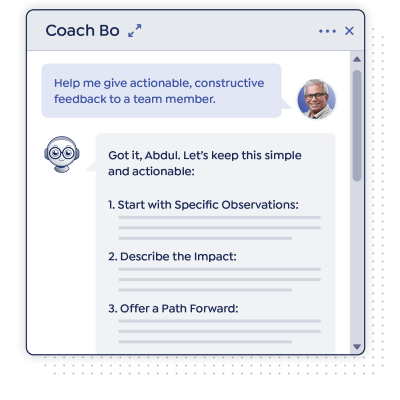There’s a widely held belief that a person’s level of emotional intelligence is static (comparable to IQ), but this isn’t actually the case. Studies have demonstrated that emotional intelligence is a trainable skill and that dedicated EI training improves people’s ability to identify and manage emotions significantly.
Which is great news: organizations with high EI employees see higher rates of productivity, better employee engagement, and overall higher profitability. But the advantages of high emotional intelligence go beyond boosting the bottom line. Increasing your EI yields impressive personal gains as well, from improved physical and psychological wellness, stronger social bonds, and higher employability.
Being able to drive such meaningful changes must mean that the ways to improve emotional intelligence would have to be expensive, time-consuming, or require expert guidance… right? Well, here’s more good news: the strategies to increasing your emotional intelligence are fairly simple and easy to implement.
There are four main components to emotional intelligence: self-awareness, self-management, social awareness, and relationship management.
5 Ways to Improve Your Emotional Intelligence
Whether you’re looking to increase the emotional intelligence of your team, an entire organization, or just boost your own EI, we want to share 5 proven strategies and tools for increasing your emotional intelligence.
1. Tap in to your emotions to increase self-awareness
Learning to identify emotions in yourself is the first step to being able to identify and understand them in others, laying critical foundation for high emotional intelligence. Being able to recognize how you’re feeling and why you feel that way can be a conscious practice. Journalling, talking through your feelings with a trusted friend or professional can help you learn how to process emotions and understand their root causes.
Identifying feelings allows you to develop an objective sense of how you interact with the world around you, resulting in increased self-awareness. Perhaps ironically, studies have shown that one of the best mechanisms for increasing self-awareness is by receiving constructive feedback.
Accurate measurement of emotional intelligence with an assessment like Criteria’s Emotify is a reliable and objective way to identify strengths and areas for improvement.
2. Improve self-regulation with daily exercises
Identifying your emotions is one thing – controlling them is another. A key component of improving your emotional intelligence is being able to regulate your emotions. People with high emotional intelligence are able to connect the way they feel with the way the behave.
Keeping emotion-fueled impulses in check allows you to navigate challenges with more clarity and diffuse emotionally-charged situations. Self-regulation is a critical skill that makes it easier for you to adapt on the fly, reduce your stress levels, and find the best path forward even when emotions are running high.
One key strategy to improving self-regulation is called cognitive reappraisal. This approach involves changing your perception of a frustrating situation, and then reinterpreting the event to minimize the impact of its negativity. Taking a breath and refocusing the experience as an opportunity for growth can help you adjust your emotional reaction to a more neutral or even positive response.
Improving emotional regulation gets easier with practice. It’s okay to start small with low-stakes everyday frustrations: staying patient in a long queue, navigating automated customer service prompts, or any other situations that can sour your day.
3. Brush up on your communication skills
Once you’re able to identify emotions in yourself, it becomes easier to identify them in others. People with high EI can interpret the underlying emotions that drive the actions those around them take. Couple this understanding with strong communication skills, and you’ll be able to build and maintain strong relationships.
Strong communicators practice:
- Active listening – pay attention to both verbal and nonverbal cues
- Empathy – acknowledge and understand the feelings of others
- Nonverbal communication – stay mindful of their body language
- Effective expression – use concise, clear language and “I” statements to avoid placing blame
One of the best ways to improve emotional intelligence in the workplace is to be conscientious of the way you interact and communicate with those around you. Improving your emotional intelligence makes it easier to collaborate, connect with, and motivate those around you.

4. Try dedicated tools to improve reflection
One of the most effective ways to improve emotional intelligence is through regular self-reflection, and that’s where Develop comes in. Develop is Criteria’s employee development platform designed to help individuals understand their behaviors, motivations, and interpersonal dynamics. Through guided prompts and personalized insights, Develop helps users identify emotional patterns and see how their emotions influence their actions at work.
By using Develop consistently, individuals can track their emotional responses over time and begin to shift their behavior towards more positive outcomes. This kind of intentional reflection is key to building the self-awareness and self-regulation that form the foundation of high emotional intelligence.

In addition to self-reflection, receiving objective feedback is essential for improving emotional intelligence, but it can be hard to access this kind of feedback without a trusted mentor. That’s where Criteria’s Coach Bo steps in. Coach Bo is an AI-powered coaching tool that delivers real-time, actionable feedback based on workplace behaviors. It provides a support environment for individuals to understand how their actions are perceived by others and offers practical suggestions for improvement.
Coach Bo’s unbiased insights help remove the guesswork from emotional development. By highlighting specific emotional intelligence behaviors like empathy, active listening, or emotional regulation, Coach Bo empowers users to make targeted improvements. Over time, this feedback loop helps individuals become more emotionally attuned, better communicators, and more effective collaborators.
Together, Develop and Coach Bo provide a powerful one-two punch for building emotional intelligence in the workplace through self-awareness, reflection, and actionable feedback.
5. Practice makes perfect
Like all skills in life, practice is what transforms a new ability into second nature. The more you flex your emotional intelligence skills, the higher your capacity for EQ will become.
Practicing the core skills related to perceiving, understanding, and managing emotions can lead to meaningful, lasting increases in your EQ. Dedicating a little time each day to improving your emotional intelligence will help you make better decisions, communicate more clearly, and build stronger relationships both personally and professionally.
As you continue to develop these skills, you’ll notice a shift in how you handle stress, navigate conflict, and connect with others. Emotional intelligence isn’t something you’re born with: it’s a trainable skill that grows with practice. Whether it’s pausing to reflect before reacting, expanding your emotional vocabulary, or learning to reframe challenging situations, each small step contributes to a more emotionally intelligent version of yourself.
And the best part? These improvements don’t just benefit you - they elevate everyone around you too.
Building Emotional Intelligence is a Lifelong Advantage
Improving emotional intelligence begins with self-awareness and grows through consistent practice and reflection. By applying these strategies and making use of valuable tools, you can develop stronger emotional insight and resilience over time. Not only will you see great personal growth, but you’ll help to build a more connected, collaborative, and emotionally intelligent workplace.





